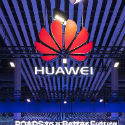China's biggest maker of network equipment and smartphones is seeking new chip suppliers as the latest US sanctions loom.

Huawei is moving quickly to assure its semiconductor supply in the wake of the latest US government ban.
The Commerce Department announced on May 15 that it would prohibit Huawei from buying chips built with US hardware or software.
A ban on buying components from US suppliers, imposed 12 months ago, has had minimal effect on either Huawei's network or handset business.
But the latest restrictions, which will take effect 120 days after the announcement, will almost certainly have a deeper impact.
They will likely end Huawei's relationship with its largest chip manufacturer, Taiwan Semiconductor Corp (TSMC), and curtail its in-house chip business. (See Huawei is running short of friends, but it still has options.)
Huawei is now reported to be in talks with multiple chip firms to ensure supply, in particular for its handset division.
It is turning to Taiwanese chip developer MediaTek and China's state-backed Unisoc as alternative suppliers, Nikkei Asian Review has reported.
According to Nikkei, Huawei is seeking a 300% increase in volume from MediaTek, the world's second-largest developer of handset chips, behind Qualcomm.
It currently supplies components for Huawei's low-end and mid-range 4G phones.
Ming Zhao, head of the unit that makes flagship phone Honor, acknowledged in an interview last week that the company would be working with Mediatek on 5G.
This would mean MediaTek products replacing the advanced Kirin chips made by Huawei's fully owned subsidiary HiSilicon.
HiSilicon, which supplies only Huawei, could become one of the biggest casualties of the new sanctions, as it relies heavily on US manufacturing technology.
While Huawei has virtually no choice other than MediaTek, the Taiwan firm is also a supplier to competitors such as Xiaomi, which means Huawei will lose the differentiation it achieves from HiSilicon.
Unisoc, formerly known as Spreadtrum and now a unit of the Tsinghua Unigroup, is another potential supplier. But it makes chips mostly for low-end devices and would not have the ability to support advanced smartphones.
Want to know more about 5G? Check out our dedicated 5G content channel here on
Light Reading.
Besides seeking new suppliers of processor chips, Huawei is stockpiling storage chips in case of loss of supply, Korean Economic Daily reported.
It has sought assurances from Korean memory chip providers Samsung and SK Hynix about continued shipments. Huawei is one of the largest customers of Samsung and SK Hynix, spending about 10 trillion won (US$8.1 billion) on DRAM and NAND flash memory chips each year.
Meanwhile, Huawei isn't the only Chinese telecom vendor on a US government blacklist.
The Commerce Department last week also added Fiberhome Technologies, China's second-biggest optical network supplier, to its blacklist of companies that support China's surveillance state or working with the military.
Another 33 firms were placed on the list, including AI company CloudWalk, Softbank-invested CloudMinds, cybersecurity firm Qihoo 360 and facial recognition specialist SenseNets.
— Robert Clark, contributing editor, special to Light Reading
Read more about:
AsiaAbout the Author(s)
You May Also Like











